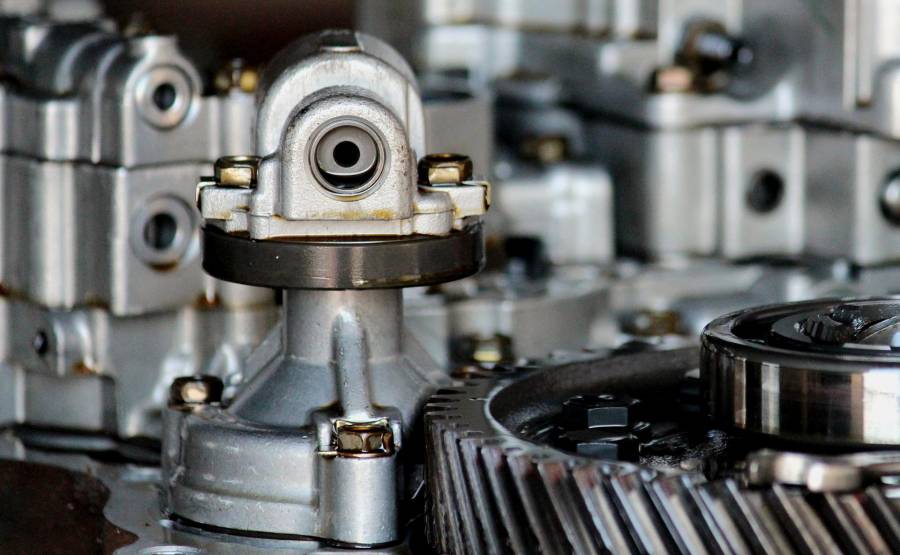Quick Navigation
An automatic transmission uses a clutch to engage and disengage the engine from the transmission. The clutch is what allows the car to shift gears.
When the clutch goes bad, it can cause several problems with the transmission.
The clutch is engaged when the car is in a drive position and the transmission is in gear. It is what allows the engine to turn the wheels.

What Are The Symptoms Of A Bad Clutch In An Automatic Transmission?
Several symptoms can indicate that the clutch in your automatic transmission is going bad.
If you notice any of these symptoms, it is crucial to have your transmission checked by a qualified mechanic.
The Car Has Trouble Shifting Gears
One of the most common symptoms of a bad clutch is that the car has trouble shifting gears.
It may be caused by various factors, such as wear and tear or excessive heat exposure. It can help to prevent damage to other components in your car.
It can also ensure that you can maintain optimal performance when driving.
So if you notice that your car has trouble shifting gears, be sure to get it inspected right away. And take appropriate steps to address any issues with the clutch.
The Car Slips Out Of Gear
Another common symptom of a bad clutch is when the car slips out of gear. It can happen while driving or trying to shift into a different gear.
If the clutch is slipping, it’s not engaging correctly and is starting to wear out.
The Car Makes Noise When Shifting Gears
It is good to inspect the transmission if you notice the car is making noise when shifting gears. This noise is usually caused by the clutch not disengaging correctly.
You can check a few things to see if the clutch is not disengaging correctly.
First, look at the return spring to see if it is damaged or tensioned incorrectly.
Next, check the release fork for wear or damage.
Additionally, inspect the clutch disk to see if it is glazed or damaged.
If you find any of these problems, it is best to take your car to a mechanic to have the transmission repaired.
The Car Jerks When Shifting Gears
Car jerking while shifting gears can be caused by the transmission not engaging correctly.
Jerking or grinding when shifting gears in a car can be caused by several factors. One common cause is that the transmission is not engaging correctly.
It means that it fails to shift into the desired gear smoothly. It may even get stuck in place at specific points.
This problem can be due to worn bearings, clogged fluid passages, faulty sensors, or other issues.
It is necessary to perform a thorough diagnostic test on the transmission system to determine the cause of jerking.
Once any issues have been identified and resolved, the vehicle should be able to shift gears smoothly and efficiently.
The Car May Make A Grinding Noise When Shifting Gears
When shifting gears, grinding noises is a classic sign that the clutch is not disengaging correctly.
The clutch is a vital component of the transmission, and it is responsible for engaging and disengaging the gears.
When the clutch is not working correctly, it can cause the gears to grind against each other. It leads to loud and unpleasant noise.
In addition to the noise, a faulty clutch can also cause the car to jerk or stall when shifting gears.
The Accelerator May Not Work Properly
Over time, a car’s clutches can become damaged or worn out. It compromises its ability to engage and function as intended fully.
When this happens, the accelerator may not work correctly. It can cause the car to either stall or jerk unexpectedly when trying to accelerate.
It can be frustrating and dangerous for drivers, especially on busy roads or highways.
Through careful inspection and maintenance, your mechanic can help identify the root cause of the problem.
And make any necessary repairs to ensure that your accelerator works appropriately and safely.

Faulty Clutch Pedal
If the clutch pedal feels spongy or soft, it may signify a problem with the clutch.
When the clutch pedal feels spongy or soft, it is usually an indication faulty hydraulic system that operates the clutch.
In most cases, this can be fixed by bleeding the clutch line. It will remove any air bubbles that have gotten into the system.
However, replacing the clutch master cylinder or slave cylinder may be necessary if the problem persists.
Burnt Odor
If you notice a burning smell from the car, it could signify a problem with the clutch.
It is often due to friction between the clutch disc and pressure plate, which results in extreme heat.
Some other possible causes of a clutch problem can include:
- Failure to properly lubricate all parts of the clutch.
- Damage caused by sudden deceleration or hard acceleration.
- Failure to replace worn components such as springs, bushings, or bearings.
It may seem alarming when you detect a burnt odor from your car. But taking immediate action can help you avoid more severe problems.
Malfunction Indicator Lamp (MIL)
One of the first signs of trouble with the clutch is often the MIL light coming on.
The clutch is not engaging correctly, and the engine is not getting enough power to the wheels.
If this problem is not fixed, it can lead to more severe problems with the car.
Therefore, if you see the Malfunction Indicator Lamp come on, it is crucial to take your car to a mechanic.
Decreased Fuel Efficiency
Bad clutches can reduce fuel efficiency as the engine works harder to compensate for the clutch not working correctly.
The clutch allows the car transmission to change gears, which is essential for controlling speed and power.
When a clutch is not working correctly, it can cause problems, including reduced fuel efficiency.
The engine must work harder to compensate for the clutch not engaging correctly.
As a result, the car uses more fuel and emits more emissions. In addition, a bad clutch can also cause the engine to overheat, which can lead to severe damage.
It is vital to have a bad clutch repaired as soon as possible.
How Do You Identify A Bad Clutch In An Automatic Transmission?
If your car shows any of the symptoms mentioned earlier, it’s time to get your transmission checked.
A qualified mechanic will be able to diagnose the problem and recommend the best course of action.
Symptoms Of Bad Clutch In Automatic Transmission – Final Thoughts
A bad clutch can be a significant problem with your automatic transmission car.
If you notice any of the symptoms mentioned above, it’s essential to diagnose and repair the issue as soon as possible.
Following the tips above can help you avoid a Bad clutch in your automatic transmission car.
If you have any further questions and queries, please feel free to ask in the comments below. Happy driving!

Kevin has been hanging around cars and automobile magazines since he knew what a car is. He grew up in his father’s 1995 Mercedes E320 Wagon and Volkwagon Phaeton W12 2004. He rides his first car, a manual 1979 Porche 911SC.
Currently, he owns an Acura Integra GS-R. During his childhood, he showed a keen interest in how things actually work and fix them. This passion transforms into his eternal love for cars and bestows him an ideal position in one of the leading automobile companies; whenever he finds time, he takes out his Acura and opts for the longest possible route to find hidden wholesome pleasure in a road trip.
Want to read some of the articles written by Kevin? Head to our blog section to find out all the articles written by Kevin.






